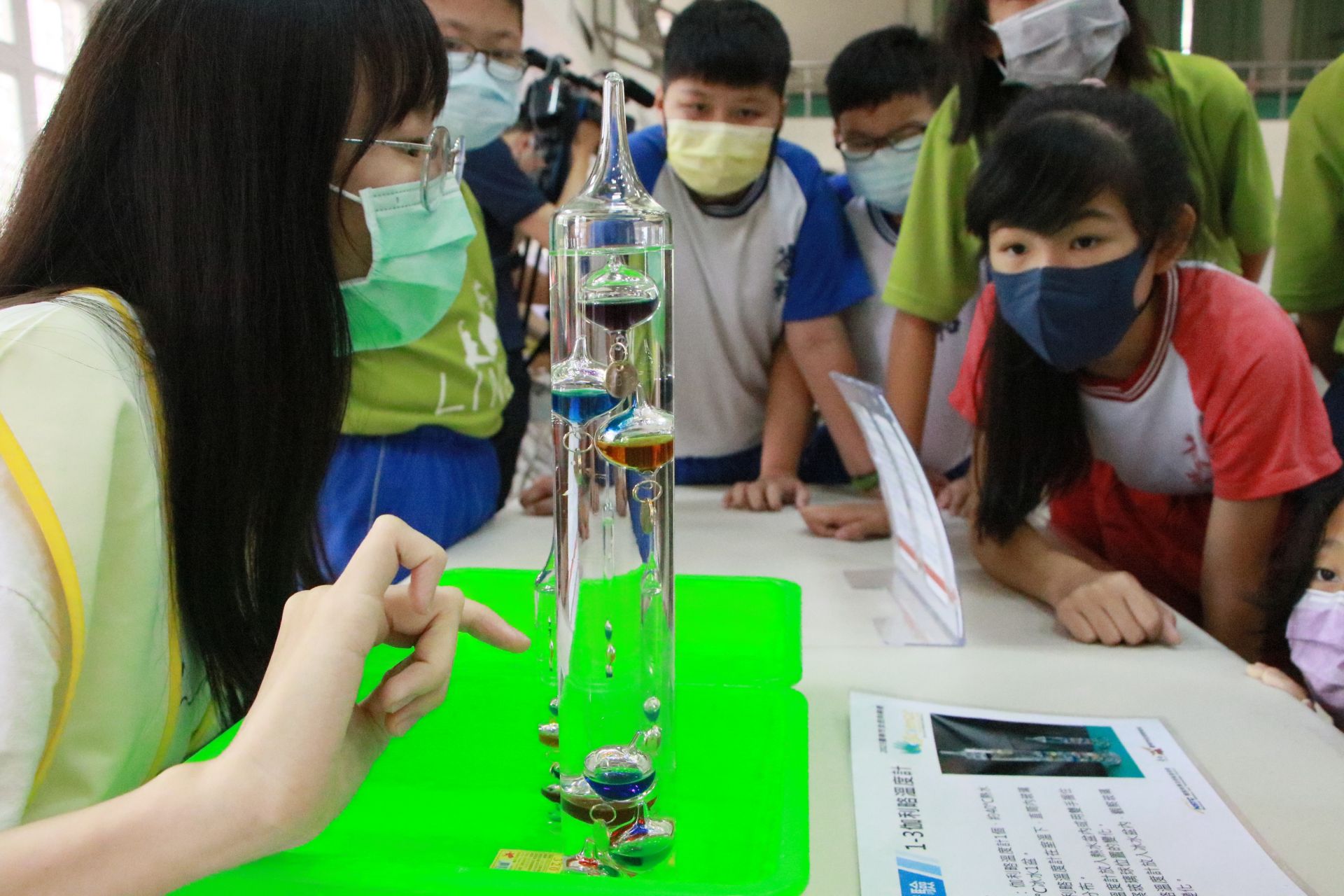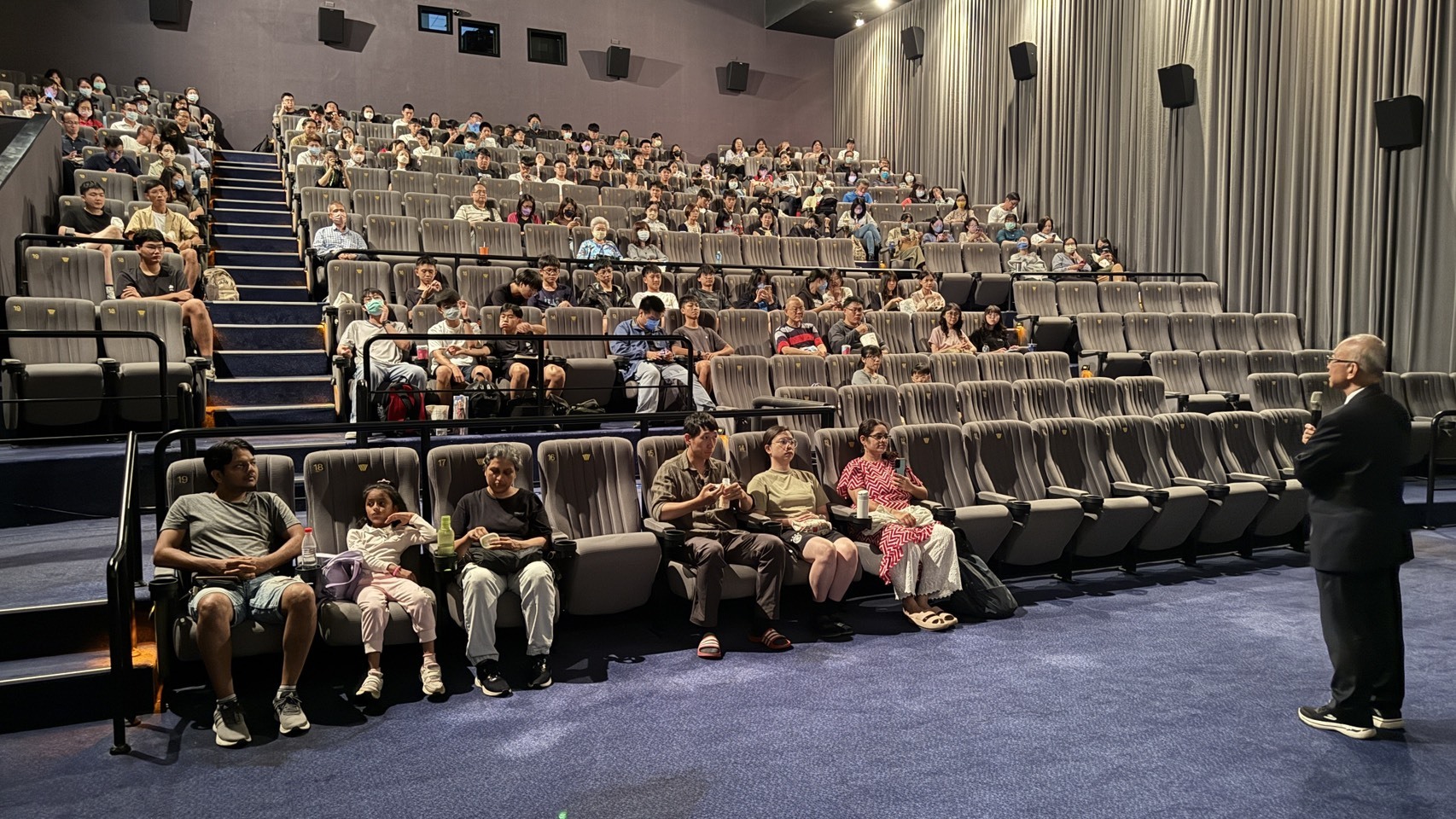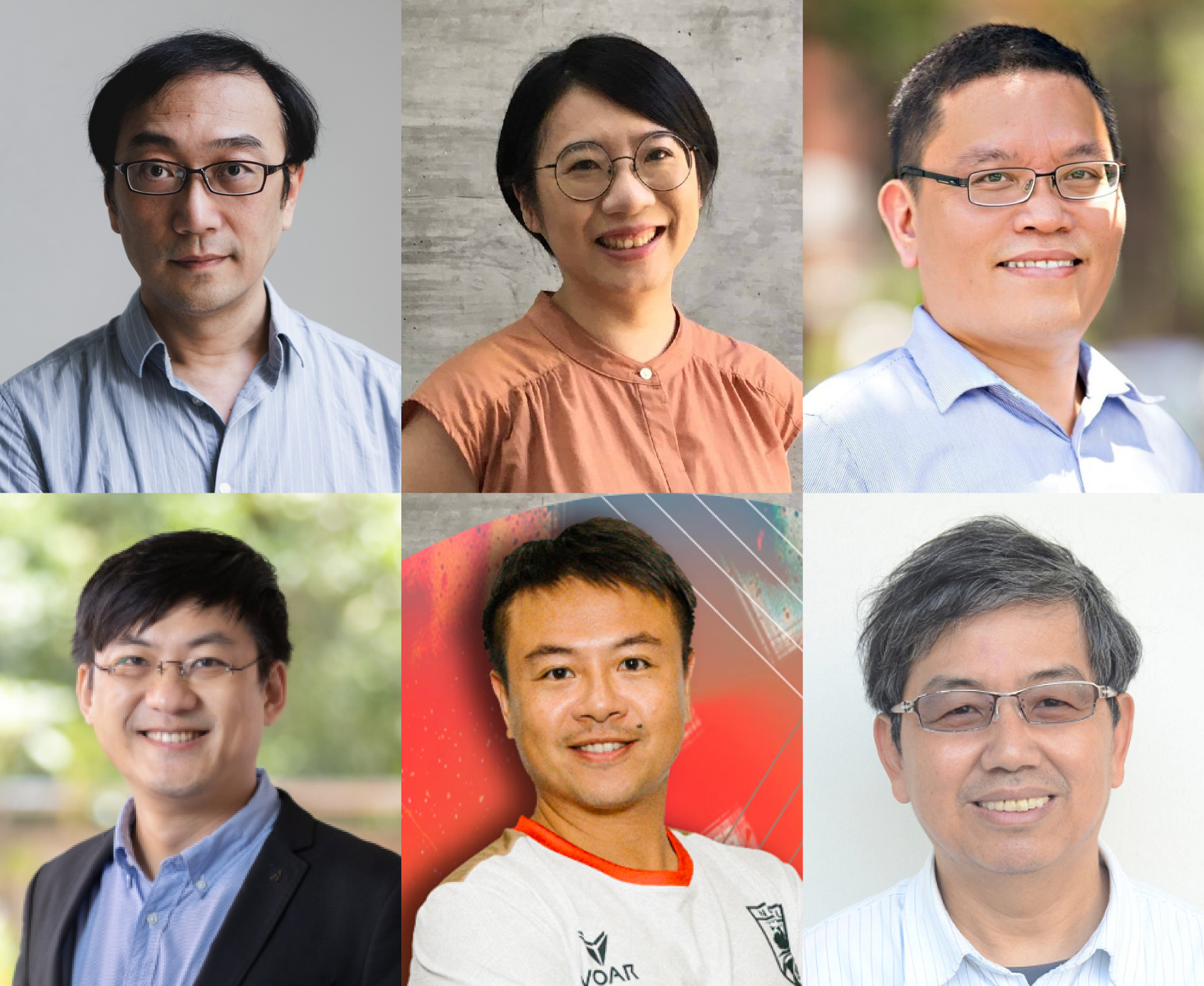Written by NCKU Office of Internation Affairs. Image credit to NCKU News Center.
On August 26, 2025, Prof. Osamu Ohneda, Vice President for Global Affairs of University of Tsukuba (UT) and Asst. Prof. Mizuho Fukushige, Bureau of Global Initiatives of UT, visited National Cheng Kung University (NCKU) to discuss the research collaboration on Artificial Intelligence (AI), Life Science, Campus in Campus (CiC) Initiative, and the talent cultivation program: DOJO project.
In his welcome remarks, Executive Vice President Chang noted that there have been various collaborative projects between UT and NCKU, such as a Memorandum of Understanding (MoU), student and faculty exchange, joint research endeavors, collaborative forums, and reciprocal visits. Having maintained a long-term partnership, NCKU had participated in CiC in 2023, enhancing interaction among faculties and students from each institution; especially through the program “DOJO in Taiwan,” which not only fostered collaboration among industry, government, and academia, but laid a solid foundation for talent cultivation in higher education. Executive Vice President Chang demonstrated the aspiration to strengthen the exchange between the two institutions’ research centers in their respective areas of expertise and expressed optimism for more joint academic publications in the future.
Prof. Ohneda expressed his gratitude to NCKU for organizing the meeting, highlighting the enduring partnership between UT and NCKU. He mentioned that UT hopes to forge new collaborations by discussing joint research initiatives, CiC program, and the Worldwide Universities Network (WUN). Notably, the inaugural DOJO in Taiwan took place this February provided students with a cross-cultural experience in order to compare the differences in urban planning between Taiwan and Japan, as well as cultivated the next generation of leaders.
Asst. Prof. Fukushige expressed UT’s interest in co-hosting the “GASSHUKU” with NCKU, a training camp aiming to invite the professors along with students to Japan for short-term field-based study programs on specific topics such as disaster resilience, innovation ecosystems, aging communities, and life sciences. Prof. Yasunori Endo, Vice President and Executive Director for Research, outlined the research strengths and collaboration models of UT. Prof. Kazuhiro Fukui, Director of the Center for Artificial Intelligence Research (C-AIR), presented an overview of C-AIR, which collaborates with the university’s International Institute for Sleep Medicine (IIIS), Cyber Medicine, and international industry partners.
Chair Prof. Sun-Yuan Hsieh, Vice President for International Affairs (OIA) from NCKU, noted that NCKU has demonstrated outstanding achievements in the fields mentioned by UT. OIA will further assess the academic capacities, and connect relevant members and research teams with the aim of advancing strategic collaboration between both institutions.
The UT delegation included Prof. Osamu Ohneda, Vice President for Global Affairs; Asst. Prof. Mizuho Fukushige, Bureau of Global Initiatives. Online participants included Prof. Yasunori Endo, Vice President and Executive Director for Research; Prof. Kazuhiro Fukui, Director of the C-AIR; Prof. Tetsuya Sakurai, Executive Director of C-AIR; Prof. Tadachika Koganezawa, Director of the Taiwan Office.
Representatives from NCKU included Distinguished Prof. Shyy-Woei Chang, Executive Vice President; Chair Prof. Sun-Yuan Hsieh, Vice President for International Affairs; Ms. Cindy Su, Chief Executive Officer for International Affairs; Prof. Tsunglin Liu, Director for International Relations; Ms. Ya-Tsui Ellen Hsueh, Deputy Director for International Relations; Ms. Nina Fu and Ms. Anna Wu, Managers from International Relations.
University of Tsukuba, located in Tsukuba City, Ibaraki Prefecture, Japan, was established in October 1963. From 2020 to 2025, the top five areas of UT’s scholarly output are Medicine (30.7%), Physics and Astronomy (17.3%), Biochemistry, Genetics and Molecular Biology (15.2%), Computer Science (14.7%), and Engineering (14.6%). Between 2020 and 2025, National Cheng Kung University (NCKU) collaborated with Tsukuba University on 273 academic publications, with the top three fields being Physics and Astronomy (79.3%), Medicine (11.7%), and Engineering (5.5%).
Provider: NCKU News Center
Date: 2025-09-02
On August 26, 2025, Prof. Osamu Ohneda, Vice President for Global Affairs of University of Tsukuba (UT) and Asst. Prof. Mizuho Fukushige, Bureau of Global Initiatives of UT, visited National Cheng Kung University (NCKU) to discuss the research collaboration on Artificial Intelligence (AI), Life Science, Campus in Campus (CiC) Initiative, and the talent cultivation program: DOJO project.
In his welcome remarks, Executive Vice President Chang noted that there have been various collaborative projects between UT and NCKU, such as a Memorandum of Understanding (MoU), student and faculty exchange, joint research endeavors, collaborative forums, and reciprocal visits. Having maintained a long-term partnership, NCKU had participated in CiC in 2023, enhancing interaction among faculties and students from each institution; especially through the program “DOJO in Taiwan,” which not only fostered collaboration among industry, government, and academia, but laid a solid foundation for talent cultivation in higher education. Executive Vice President Chang demonstrated the aspiration to strengthen the exchange between the two institutions’ research centers in their respective areas of expertise and expressed optimism for more joint academic publications in the future.
Prof. Ohneda expressed his gratitude to NCKU for organizing the meeting, highlighting the enduring partnership between UT and NCKU. He mentioned that UT hopes to forge new collaborations by discussing joint research initiatives, CiC program, and the Worldwide Universities Network (WUN). Notably, the inaugural DOJO in Taiwan took place this February provided students with a cross-cultural experience in order to compare the differences in urban planning between Taiwan and Japan, as well as cultivated the next generation of leaders.
Asst. Prof. Fukushige expressed UT’s interest in co-hosting the “GASSHUKU” with NCKU, a training camp aiming to invite the professors along with students to Japan for short-term field-based study programs on specific topics such as disaster resilience, innovation ecosystems, aging communities, and life sciences. Prof. Yasunori Endo, Vice President and Executive Director for Research, outlined the research strengths and collaboration models of UT. Prof. Kazuhiro Fukui, Director of the Center for Artificial Intelligence Research (C-AIR), presented an overview of C-AIR, which collaborates with the university’s International Institute for Sleep Medicine (IIIS), Cyber Medicine, and international industry partners.
Chair Prof. Sun-Yuan Hsieh, Vice President for International Affairs (OIA) from NCKU, noted that NCKU has demonstrated outstanding achievements in the fields mentioned by UT. OIA will further assess the academic capacities, and connect relevant members and research teams with the aim of advancing strategic collaboration between both institutions.
The UT delegation included Prof. Osamu Ohneda, Vice President for Global Affairs; Asst. Prof. Mizuho Fukushige, Bureau of Global Initiatives. Online participants included Prof. Yasunori Endo, Vice President and Executive Director for Research; Prof. Kazuhiro Fukui, Director of the C-AIR; Prof. Tetsuya Sakurai, Executive Director of C-AIR; Prof. Tadachika Koganezawa, Director of the Taiwan Office.
Representatives from NCKU included Distinguished Prof. Shyy-Woei Chang, Executive Vice President; Chair Prof. Sun-Yuan Hsieh, Vice President for International Affairs; Ms. Cindy Su, Chief Executive Officer for International Affairs; Prof. Tsunglin Liu, Director for International Relations; Ms. Ya-Tsui Ellen Hsueh, Deputy Director for International Relations; Ms. Nina Fu and Ms. Anna Wu, Managers from International Relations.
University of Tsukuba, located in Tsukuba City, Ibaraki Prefecture, Japan, was established in October 1963. From 2020 to 2025, the top five areas of UT’s scholarly output are Medicine (30.7%), Physics and Astronomy (17.3%), Biochemistry, Genetics and Molecular Biology (15.2%), Computer Science (14.7%), and Engineering (14.6%). Between 2020 and 2025, National Cheng Kung University (NCKU) collaborated with Tsukuba University on 273 academic publications, with the top three fields being Physics and Astronomy (79.3%), Medicine (11.7%), and Engineering (5.5%).
Provider: NCKU News Center
Date: 2025-09-02
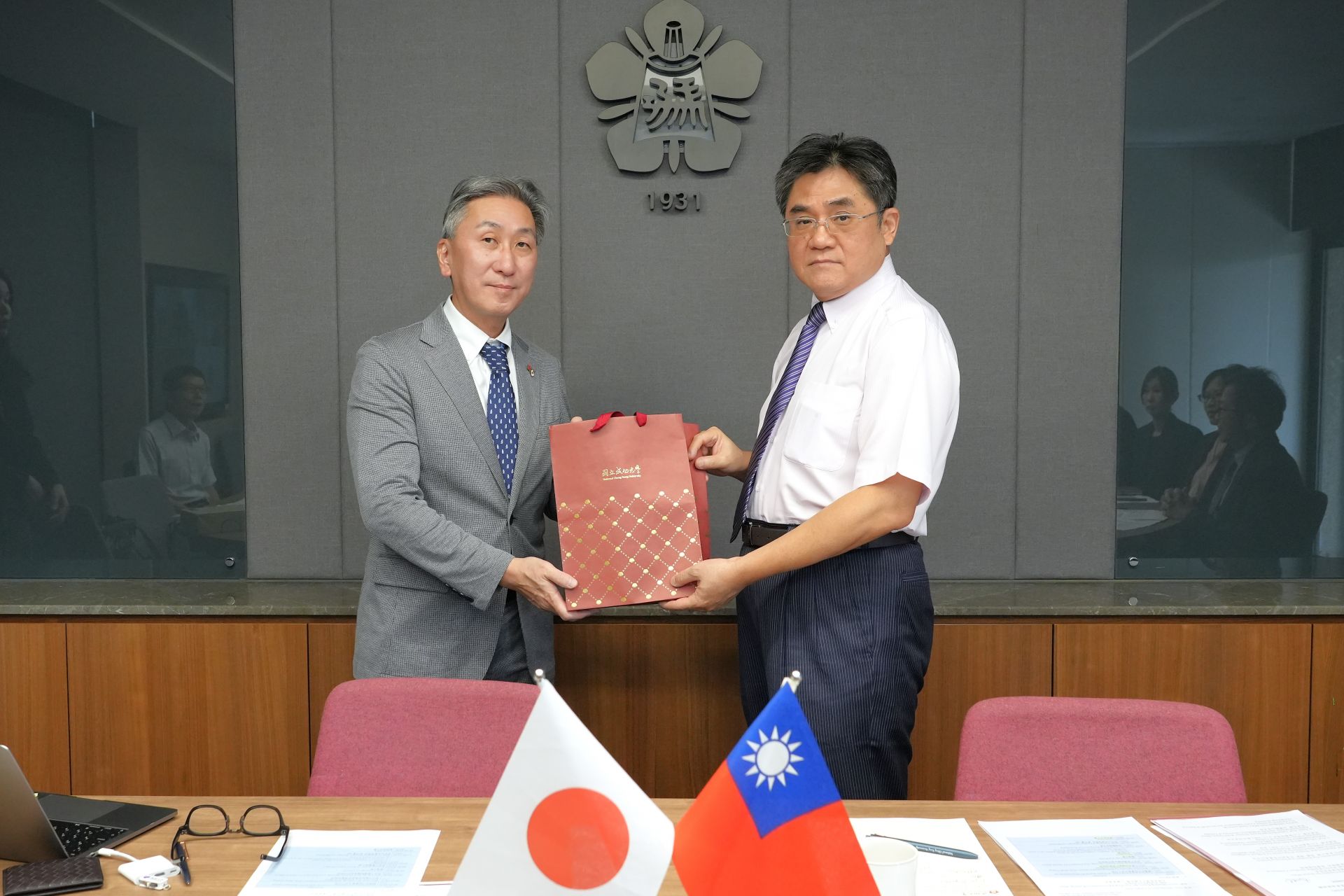
Dist. Prof. Shyy-Woei Chang, Executive Vice President of NCKU, presented a gift to Prof. Osamu Ohneda, Vice President for Global Affairs, UT
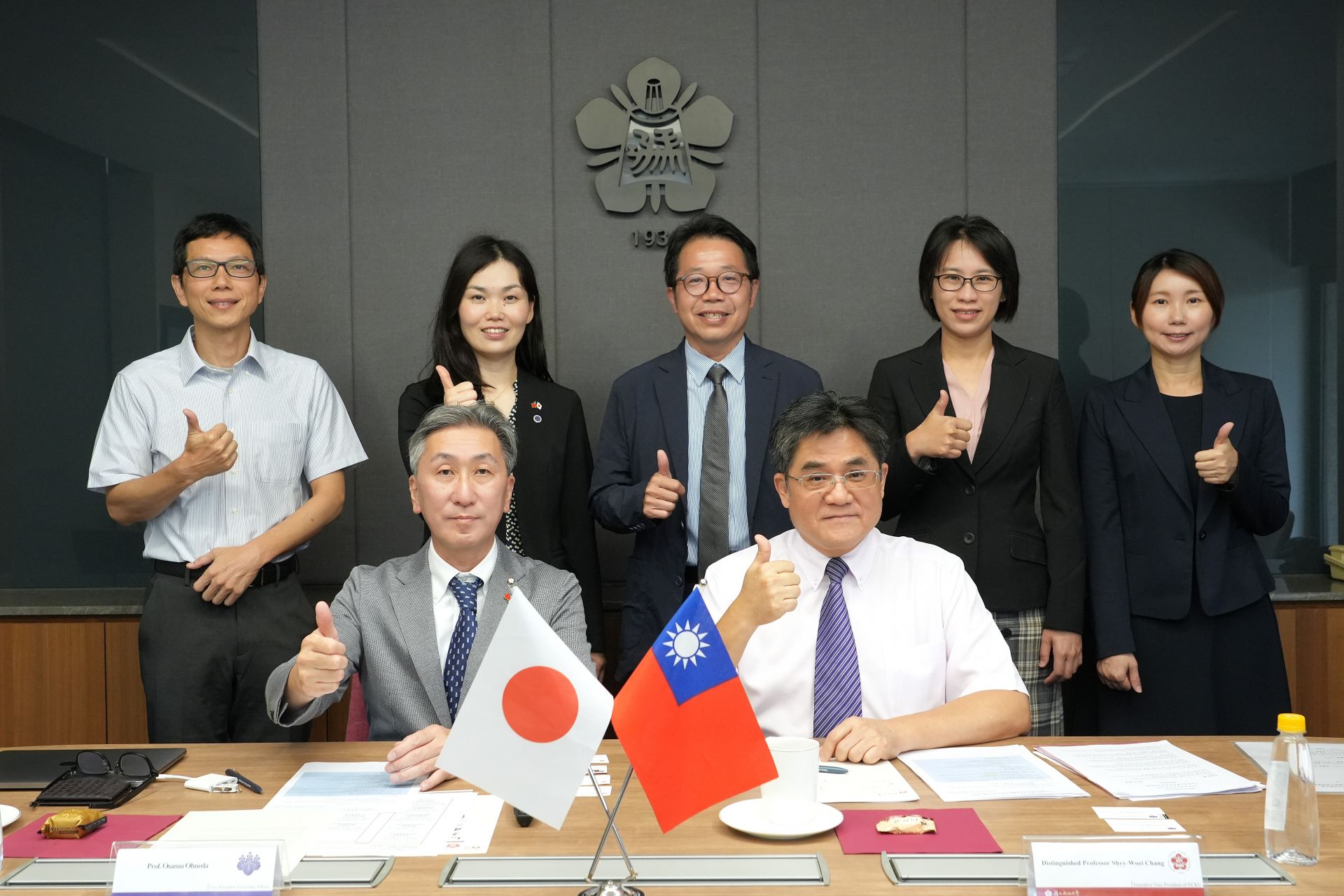
The two universities engaged in a conversation about fostering talent and conducting research on artificial intelligence.






